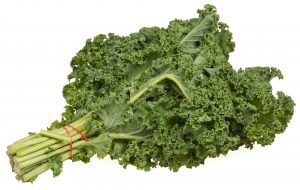
By Mark Buckawicki via Wikimedia Commons
In 2013, people in the United States spent nearly $35 billion on vitamins and supplements. Something like 1 in 3 people take a multivitamin, and around half of people took some type of supplement in the past 30 days.
So why, on the Healthy Matters radio broadcast the other day, did I say that I am not a big fan of supplements?. They’re supposed to be good for you, right? Are all those people wrong?
No, they’re not all wrong. But I do have opinions on the use of vitamins and supplements, and I do think that for most people, they are a waste of money. Allow me to explain . . .
But first, to hear me pontificate about supplements on the radio broadcast, download the podcast by clicking the logo here and fast-forwarding to 28:54.
(Healthy Matters show #448, August 6, 2017)
Who needs supplements
I think there are people for whom vitamins, minerals, and other supplements (hereafter I’ll call them all supplements) may be a good idea. For instance, I think there are pretty solid arguments that these folks should take a supplement:
(Click the links to the CDC and NIH to see what each of these actually does)
- Any woman who might become pregnant: folic acid (to prevent some types of birth defects).
- Pregnant women: iron (for anemia).
- Breastfed infants: vitamin D (to promote bone and calcium health).
- Post-menopausal women: vitamin D and calcium (for bone health)
- People over age 50: Vitamin B12 from fortified foods or supplements (since they don’t absorb very well the Vitamin B12 found in natural foods)

By Marlith via Wikimedia Commons
And fish oil. I think fish oil is good. But fresh salmon is even better.
There are probably some others who may benefit, and everybody’s individual situation is different. For instance, lots of anemic people need iron supplements, and people following gastric bypass surgery often need B12. But I’m talking about average risk people who are taking supplements for their general health. Most of them don’t need them.
The supplement paradox
It is known that the people most likely to benefit from supplements are the ones least likely to take them. In fact, according to the NIH Office of Dietary Supplements (yes, there is such an agency), here are the groups most likely to take supplements:
- Women
- The elderly
- People with more education
- Those with higher income
- People with healthier diets and lifestyles
- People with lower body weights
- People in the western United States.
Not sure about why that last one is true. Must be something with Californians like people who live here:

By Tobias Kleinlercher via Wikimedia Commons
But except for that one and the elderly, the striking about this list is that all of these things are protective and make people healthier. Education, higher income, healthy lifestyle, not being overweight – all make people healthier.
And yet these are the folks taking supplements. And they probably don’t need them to begin with.
So it is poorer folks, those without a healthy diet, overweight people, and those with less education – all risk factors for poor health – who are NOT taking supplements as much. And they are, just maybe, the groups who could benefit. The reasons probably aren’t too difficult to imagine (lack of money means you’re probably not buying expensive vitamins immediately comes to mind, for instance).
My personal take on the whole supplement thing
Given that previous paragraph, why would I be unenthusiastic about supplements? I had someone send me that very question to the radio show this past week. Maybe because I sound so open to a variety of health and wellness ideas, it seems weird that I don’t fully endorse vitamins.
I have two responses to that.
- If you are in poor health, particularly if your diet is not balanced and nutritious, then it is probably a good idea to supplement your diet.
- But at the same time, if your diet is not balanced and nutritious (you can read that as lots of vegetables, whole grains, healthy meats and dairy, and basically lots of whole foods that are not processed), then I would prefer you spend your money on correcting the diet first. Taking supplements, though perhaps not (usually) harmful, will not correct other unhealthy problems, like poor diet, lack of exercise, and smoking cigarettes.
It is this last bold sentence that I try to hammer home when giving advice to people. Sometimes I’m rather blunt about it. To wit:
Point 1. If you smoke cigarettes, you are doing so much harm to your body that no amount of vitamins or supplements is likely going to matter.

By Evan-Amos via Wikimedia Commons
Point 2. If you eat a poor diet of processed foods with lots of chemical additives and processing that removes the nutrients, then your best bet is to correct your diet, not take supplements.
Point 3. So if you are already living a healthy lifestyle as best you can, then maybe you could take supplements for that extra added boost. But it is probably a waste of money.
Point 4. I think if our country spent $35 billion on things like childhood nutrition, getting poor folks access to healthier food options, weight loss programs, just about any program that reduces cigarette smoking, food and housing and education assistance for poor folks, then any money we have left over can be spent on supplements.
The human body is simply perfectly built to get all its nutrients from the foods we eat. We don’t need pills to do what our bodies are designed to do naturally.
So that’s why I’m not a big fan of supplements. Make any sense to you?
One more thing . . .
Isn’t it a riot that the TV show “The Flintstones” hasn’t been on the air for decades, but it lives on in vitamins (see photo at top of this post)? Even in the hospital, I can type “Flintstones” into our electronic health record and it will pull up an order for vitamins. That part makes me laugh.
Thanks for checking in. To listen to the podcast of last week’s show, click the logo below (there is a brief period in there, around time mark 28:54, where I address the supplement issue – fast forward to that point to hear about this topic).
(Healthy Matters show #448, August 6, 2017)
Hey follow me on Twitter @DrDavidHilden.
David

